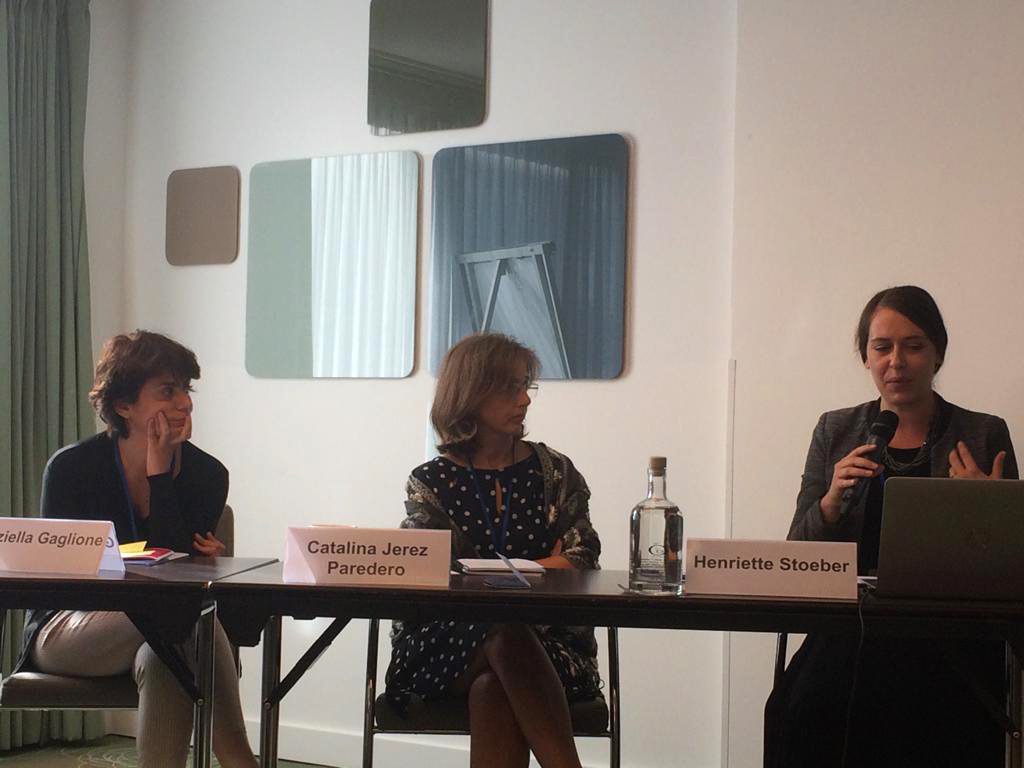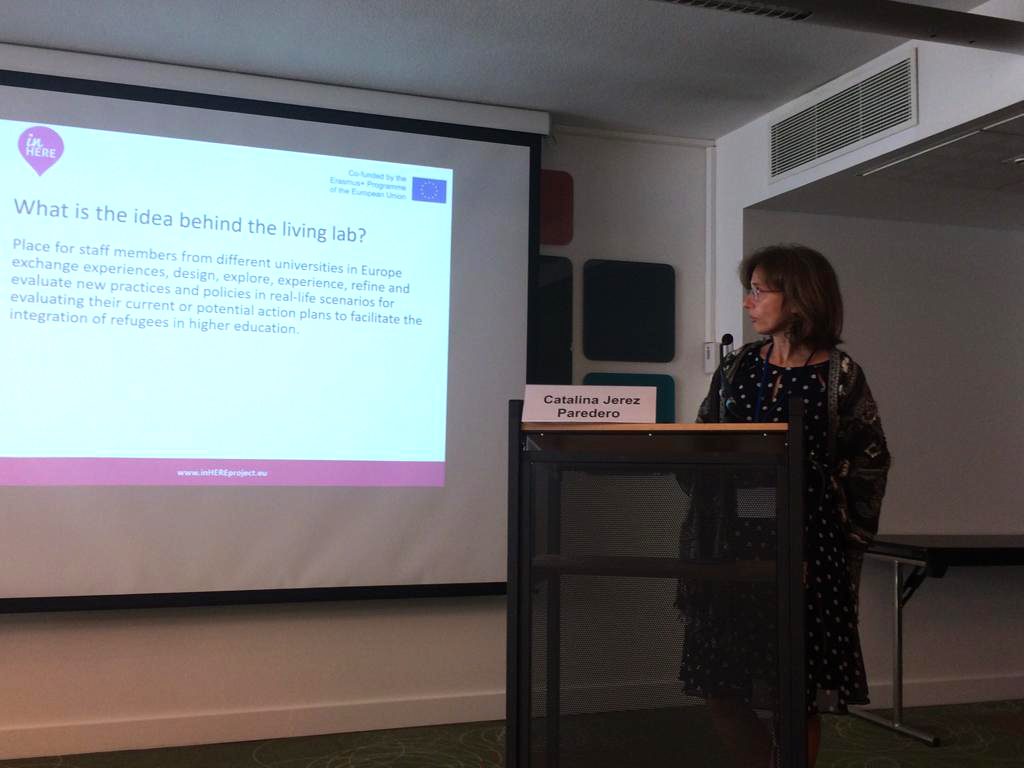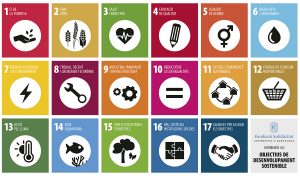At the final conference of this European project, of which the University of Barcelona is a partner, recommendations have been reached in the field of the integration of refugees in higher education.
 A hundred members from universities across Europe, including the University of Barcelona, attended this week in Brussels the final conference of the inHERE (Higher Education Supporting Refugees in Europe) project, a project that has sought to create opportunities so that refugees can participate in the European Higher Education Area (EHEA).
A hundred members from universities across Europe, including the University of Barcelona, attended this week in Brussels the final conference of the inHERE (Higher Education Supporting Refugees in Europe) project, a project that has sought to create opportunities so that refugees can participate in the European Higher Education Area (EHEA).
According to UN data, only 1% of refugees in university age have access to university, while the world average is 36%. To reverse this situation, in the last two years, inHERE has developed a series of tools, which can be consulted on its website:
- Good Practice Catalogue in welcoming refugees in higher education, led by the European Universities Association (EUA), which is the product of an in-depth analysis of almost 300 initiatives from 32 countries. One of the good practices selected is the Support program of the UB for refugees and people from conflict areas.
 Living Lab. Web seminars and multiplier events, led by the University of Barcelona, where staff members from different universities in Europe have designed, explored, experimented, refined and analyzed new practices and policies applicable to reality to evaluate action plans (current or potential) of the universities in the field of the integration of refugees in higher education.
Living Lab. Web seminars and multiplier events, led by the University of Barcelona, where staff members from different universities in Europe have designed, explored, experimented, refined and analyzed new practices and policies applicable to reality to evaluate action plans (current or potential) of the universities in the field of the integration of refugees in higher education.- Guidelines for university staff members, led by the La Sapienza University, with the aim of improving or initiating assistance activities for the integration of refugee students in the university.
- Recommendations to Higher Education institutions, Higher Education networks and Higher Education policy makers on the strategies that can be put in place to support the integration of refugees. Led by Campus France, these recommendations (in the editing phase) point out that the sustainability of the initiatives depends on a specific link to the mission of the institutions, and that these institutions need to further encourage collaboration, both between themselves and with other organizations. It is also underlined that, although research on refuge and migration is carried out, research papers are not disseminated efficiently.
Apart from a space to present the results of the project, the final conference of inHERE has also established an exchange platform with other integration projects of refugees both in higher education and research co-financed by various EU programs and funds (Erasmus +, Horizon 2020, AMIF Fund and Madad Fund).
Similarly, the event was attended by international organizations and representatives from different European Commission’s general directorates, such as the one of Education and Culture or the one of Migration and Subjects of Interior.
The inHERE project is co-funded by the European Union (through Erasmus+ Programme) and coordinated by the Mediterranean Universities Union (UNIMED). Apart from UNIMED, the partners of the project are the European Universities Association (EUA), La Sapienza University of Rome, Campus France and the University of Barcelona. The United Nations High Commissioner for Refugees (UNHCR) is an associate member.
This news is related to the following SDG of 2030 Agenda:









